Male Breast Augmentation in Turkey
Search and Compare the Best Clinics and Doctors at the Lowest Prices for Male Breast Augmentation in Turkey
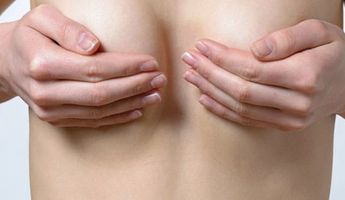
Find the best clinics for Male Breast Augmentation in Turkey
With Medijump you can browse 32 facilities offering Male Breast Augmentation procedures in Turkey. The cheapest price available is $2 in Izmir. And for the cheapest price globally, prices start from $2 in Turkey.
Male Breast Augmentation in Izmir
Price: $ 2
Male Breast Augmentation in Istanbul
Price: $ 1,030
Turkey offers the best prices Worldwide
Price: $ 2
world wide international aesthetic, located in Sirinyali, Antalya, Turkey offers patients Male Breast Augmentation procedures among its total of 57 available procedures, across 9 different specialties. The cost of a Male Breast Augmentation procedure ranges from £2,000 to £2,500, whilst the national average price is approximately £2,059. There are many specialists available at the Clinic, with 7 in total, and they are not accredited by any recognized accreditations institutes
CLINICS UNITED, located in Sirinyali, Antalya, Turkey offers patients Male Breast Augmentation procedures among its total of 19 available procedures, across 2 different specialties. The cost of a Male Breast Augmentation procedure ranges from €2,000 to €3,000, whilst the national average price is approximately €2,408. There are many specialists available at the Clinic, with 16 in total, and they are not accredited by any recognized accreditations institutes
Grand Clinic, located in Gaziosmanpasa, Istanbul, Turkey offers patients Male Breast Augmentation procedures among its total of 18 available procedures, across 4 different specialties. The cost of a Male Breast Augmentation procedure ranges from $2,000 to $2,500, whilst the national average price is approximately $2,624. All procedures and treatments are undertaken by just a small team of specialists, with 2 in total at the Hospital, and they are accredited by TTB - Turkish Medical Association
From 4 verified reviews
Sandra, 20 December 2021
Recently I had Gastric Sleeve Surgery with Dr. Celik and his team and I would like to say a few things about the surgery and his team. I really had a hard time making a decision. I was 265 lb. A friend of mine told me that I could have Gastric Sleeve Surgery and I could get rid of excess weight. There were lots of questions in my mind; Where could I have the surgery? Who is the best surgeon for this kind of surgery? Is Turkey safe? What happens if there is a complication? blah blah.. After deep research and a long period of consideration, I decided to have the surgery with Dr.Celik. It was the best decision I've ever made in my life after marriage.
Happy Esthetic, located in Karsiyaka, Izmir, Turkey offers patients Male Breast Augmentation procedures among its total of 24 available procedures, across 4 different specialties. The cost of a Male Breast Augmentation procedure ranges from $2,000 to $3,000, whilst the national average price is approximately $2,624. There are many specialists available at the Clinic, with 6 in total, and they have multiple recognized accreditations, including: TPCD - Turkish Society of Plastic Reconstructive and Aesthetic SurgeonsTDB - Turkish Dental Association
From 18 verified reviews
Alan Hyem, 12 December 2022
Overall the service has been very good, Airport transfer to hotel was seamless and professional. My liaison person who deals with all aspects of my medical timetable has also been excellent. The hotel they use Sealife is clean and comfortable. I have had my eye operation and am now in the recovery phase. My original schedule given to me was not the one I received arriving in Turkey but I think that had more to do with a weekend arrival and overall didn’t make much difference .
Medworld Health and Rehabilitation Center, located in Sirinyali, Antalya, Turkey offers patients Male Breast Augmentation procedures among its total of 30 available procedures, across 12 different specialties. The cost of a Male Breast Augmentation procedure ranges from €2,790 to €2,990, whilst the national average price is approximately €2,408. There are many specialists available at the Clinic, with 4 in total, and they are not accredited by any recognized accreditations institutes
Dorak Health, located in Sisli, Istanbul, Turkey offers patients Male Breast Augmentation procedures among its total of 17 available procedures, across 4 different specialties. The cost of a Male Breast Augmentation procedure ranges from €4,000 to €5,600, whilst the national average price is approximately €2,408. There are many specialists available at the Hospital, with 5 in total, and they are accredited by ISO 9001 : 2015
Soraca Med, located in Sirinyali, Antalya, Turkey offers patients Male Breast Augmentation procedures among its total of 33 available procedures, across 6 different specialties. The cost of a Male Breast Augmentation procedure ranges from €3,750 to €5,000, whilst the national average price is approximately €2,408. There are many specialists available at the Clinic, with 8 in total, and they are not accredited by any recognized accreditations institutes
From 11 verified reviews
Emily Thompson, 10 October 2023
Had a Gastric Sleeve procedure at Sanamentum through MyMediTravel and couldn't be happier. The team was professional and made me feel at ease throughout the process.
From 2 verified reviews
Orhan Birinci, 11 July 2020
Thanks to Dietician Ferdi Bey, I dropped from 82 kilos to 66 kilos. Although the prices are slightly expensive, it is a place that deserves it.
From 2 verified reviews
Lilian Keith, 01 January 1970
I was satisfied with the result. Thanks to Dr. Caghan and his team, very professional and helpful.
- Home
- Turkey
Compare Before & After Photos of _procedure_photos.phpMale Breast Augmentation
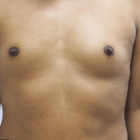
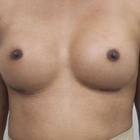
Front view
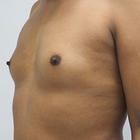
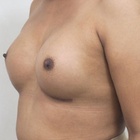
Front view
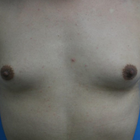
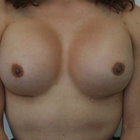
Front view
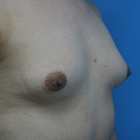
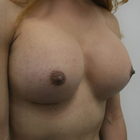
Half-side view
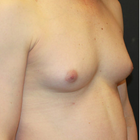
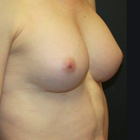
Half-side view
WHY US?
At Medijump, we're making medical easy. You can search, compare, discuss, and book your medical all in one place. We open the door to the best medical providers worldwide, saving you time and energy along the way, and it's all for FREE, no hidden fees, and no price markups guaranteed. So what are you waiting for?

Free

Best Price

Widest Selection

Risk-Free
What you need to know about Male Breast Augmentation in Turkey
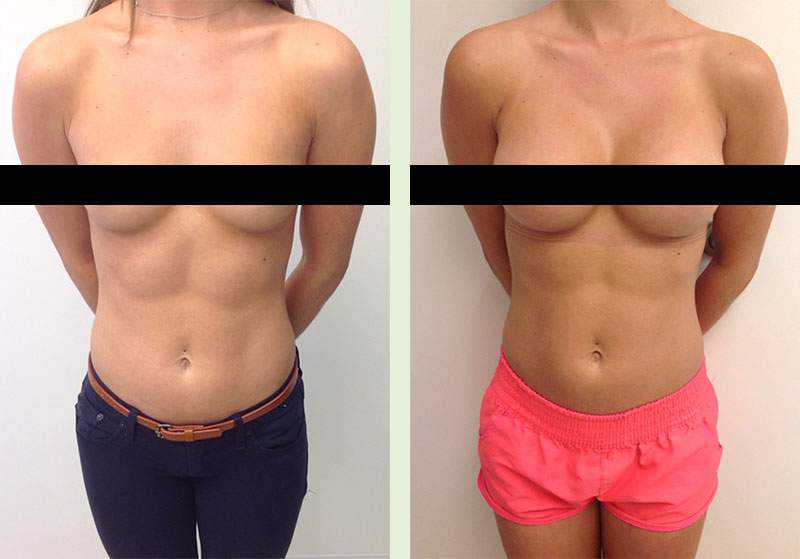
Male breast augmentation is a cosmetic procedure to enlarge the male’s breasts by inserting a breast implant. It is usually done on a male to female surgery to give patients contoured feminine breasts.
The procedure is also done to enhance the pectoral muscles on men whose chests do not seem to respond to exercise or men with Poland’s syndrome. The intervention is often preferred by individuals who wish for a chest that looks more chiseled and symbolizes masculinity. The usual method entails placing implants beneath the pectoral muscles.
What is the cost of Male Breast Augmentation in Turkey?
The expense associated with Male Breast Augmentation within Turkey fluctuates based on several variables such as the surgeon's level of skill, the intricacy of the operation, the kind of implants employed, and the physical location of the clinic. Therefore, it’s essential to converse in-depth with your medical provider to comprehensively comprehend the total expenditure related to the procedure.
Insurance plans generally don't cover Male Breast Augmentation; however, some medical facilities provide patient-friendly finance choices. It's vital to assess the pros and cons in correlation with your personal financial health strategies and determine how it aligns with your budget. Investing in your self-perception and physical appearance can potentially provide invaluable long-term benefits.
What Does the Procedure Involve?
Male breast augmentation is carried out under general anesthetic. Your surgeon starts by making an incision in an inconspicuous area, usually under the breast along the natural skin fold, to make sure the scar is unnoticeable. Then, they place the implant either under the chest muscles or behind the breast tissue. The implants can be made from silicone gel or saline, and the size is adjusted based on your preferences.
How Long Should I Stay in Turkey for a Male Breast Augmentation Procedure?
The length of your stay in Turkey after a Male Breast Augmentation is subject to certain variables. Generally, individuals are cautioned to remain in the vicinity for around a week or two following the surgery. This time frame accommodates the preliminary healing stage and facilitates the management of any immediate complications post-procedure.
In this time, your doctor will keep track of your recuperation process via planned follow-up visits. These check-ups serve as a vehicle to monitor the healing process, extract stitches, and check for any signs of infection or inherited issues. Adherence to this schedule of revisits is of utmost importance.
However, it is crucial to remember that everyone's healing experience is individual. Aspects such as age, overall physical wellness, and the degree of observance to the instructions given after the procedure can sway your recovery. Some people might necessitate an extended stay in Turkey, particularly if they encounter any complications or if their recovery pace is slower than anticipated. Therefore, it's imperative to have a conversation about this with your surgeon, who can furnish a more precise timeline based on your particular circumstance, promoting a secure and effective recuperation.
What's the Recovery Time for Male Breast Augmentation Procedures in Turkey?
You may feel uncomfortable for the first few days and your doctor will give you pain medication to manage the discomfort, so you may need to rest as much as possible during this period. The recovery period until you can go back to your normal routine (including intense exercise) may take about 4 to 6 weeks, but you should be able to return to work within 1 or 2 weeks.
Following the operation, it's fairly common for patients to feel some discomfort, along with swelling and bruising. These are standard postoperative signs that will slowly fade with time. Medical practitioners commonly prescribe pharmaceutical drugs to manage pain and to reduce bruising during this timeframe. Regular doctor visits for postoperative reviews are suggested to keep track of the healing process and promptly deal with any arising complications.
Furthermore, it's advised to avoid demanding activities such as heavy weight lifting and intense exercises for a minimum of four to six weeks after the treatment. This precaution ensures optimal healing of the chest area and minimizes the probability of post-surgical complications. Always remember, healing requires time and patience. Although resuming daily activities is important, giving your body the required time to fully recuperate from the operation is equally crucial.
What sort of Aftercare is Required for Male Breast Augmentation Procedures in Turkey?
It is important to follow your surgeon’s post-operative instruction to avoid any complications and to make sure that the wounds will heal properly. Your surgeon’s instruction may include restrictions, diet, exercise, and wound care. Since some implants need to be replaced after about 10 years, make sure you attend regular checkups with your local doctor.
Keeping regular check-ins with your medical professional is essential to keep track of your recovery journey, modify your post-treatment care if required, and tackle any arising issues swiftly. The post-treatment regimen also consists of particular instructions related to physical movement and workout. Mild physical exercise might be recommended for better blood flow, but demanding activity or chest-focused exercises are generally not permitted for a specific amount of time.
What's the Success Rate of Male Breast Augmentation Procedures in Turkey?
In general, the success rate of male breast augmentation is similar to female breast augmentation, which is around 90% to 98%. This is notably high.
The advancements in medical surgery technology, coupled with the proficiency of the medical experts, generally result in a noticeable enhancement in the physical aesthetics and self-assurance of the majority of males who opt for this procedure. Furthermore, due to the refined chest shape and muscle outline achieved, patients have reported a significant level of satisfaction.
However, akin to other medical interventions, the effectiveness of a Male Breast Augmentation is largely influenced by personal variables. These could comprise the overall wellbeing of the patient, the way their body reacts to the surgery, the surgeon's skill, and compliance with guidelines for care post-surgery.
Are there Alternatives to Male Breast Augmentation Procedures in Turkey?
Surely, other choices exist for Male Breast Augmentation techniques in Turkey. One such approach entails embarking on natural chest enhancement. This involves a regimen of chest workouts and a nutritional program aimed at boosting the bulk and power of the pectoral muscles. Though this pathway may be more time-consuming, it could provide a gradual, naturally appearing augmentation in chest size without the price tag and potential hazards tied to surgery.
Hormonal therapies present another viable alternative, particularly for transgender men. These therapies seek to encourage the formation of male secondary sexual traits, such as an uptick in muscle mass, body hair, and a more profound voice. However, it's crucial to consult a medical practitioner before beginning these therapies due to the potential side effects.
Lastly, some men might select a non-surgical technique like the injection of fillers or fat transfer to enhance the contour and fullness of the chest. However, these procedures yield temporary outcomes and may necessitate repeat procedures. It is advisable to consult with your surgeon about these alternatives.
What Should You Expect Before and After the Procedure
Before undergoing the Male Breast Augmentation, your healthcare professional will assess your medical history, carry out physical assessments, and converse about your cosmetic objectives to evaluate if you're fit for the procedure. Various diagnostic examinations may be necessary to ascertain your general health condition. Your surgical specialist will provide information about the impending procedure, discuss anticipated risks, and outline the probable result. Those who smoke will receive advice to stop several weeks prior to the procedure as nicotine may obstruct the healing process. Additionally, you might be instructed to adhere to specific dietary guidelines and discontinue certain medications.
Soon after the Male Breast Augmentation, it's common to experience some discomfort, inflammation, and bruising in the chest region. This usually decreases steadily over time. Over-the-counter drugs can be used to alleviate the discomfort. Typically, the use of a supportive compression garment is suggested to reduce swelling and aid the new chest shape during the recovery phase.
What are the Potential Risks of Male Breast Augmentation?
Although most patients are happy with the outcome of the surgery, it is important to be well-informed about the side effects and risks before you decide to have it, which are:
- Bleeding and infection
- Seroma
- Hematoma
- Asymmetry and dissatisfaction
- Implant shifting or displacement
- Numbness of the upper arm
- Unfavorable scarring
- Allergic reaction to the anesthesia.
Whilst the information presented here has been accurately sourced and verified by a medical professional for its accuracy, it is still advised to consult with your doctor before pursuing a medical treatment at one of the listed medical providers
No Time?
Tell us what you're looking for and we'll reachout to the top clinics all at once
Enquire Now

Popular Procedures in Turkey
Price on Request

Prices Start From $692

Prices Start From $556

Prices Start From $2,473

Recommended Medical Centers in Turkey for Male Breast Augmentation

- Interpreter services
- Translation service
- Religious facilities
- Medical records transfer
- Medical travel insurance
- Health insurance coordination
- TV in the room
- Safe in the room
- Phone in the room
- Private rooms for patients available

- Interpreter services
- Translation service
- Religious facilities
- Medical records transfer
- Medical travel insurance
- Health insurance coordination
- TV in the room
- Safe in the room
- Phone in the room
- Private rooms for patients available

- Interpreter services
- Translation service
- Religious facilities
- Medical records transfer
- Medical travel insurance
- Health insurance coordination
- TV in the room
- Safe in the room
- Phone in the room
- Private rooms for patients available

- Interpreter services
- Translation service
- Religious facilities
- Medical records transfer
- Medical travel insurance
- Health insurance coordination
- TV in the room
- Safe in the room
- Phone in the room
- Private rooms for patients available

- Interpreter services
- Translation service
- Religious facilities
- Medical records transfer
- Medical travel insurance
- Health insurance coordination
- TV in the room
- Safe in the room
- Phone in the room
- Private rooms for patients available

- Interpreter services
- Translation service
- Religious facilities
- Medical records transfer
- Medical travel insurance
- Health insurance coordination
- TV in the room
- Safe in the room
- Phone in the room
- Private rooms for patients available

- Interpreter services
- Translation service
- Religious facilities
- Medical records transfer
- Medical travel insurance
- Health insurance coordination
- TV in the room
- Safe in the room
- Phone in the room
- Private rooms for patients available

- Interpreter services
- Translation service
- Religious facilities
- Medical records transfer
- Medical travel insurance
- Health insurance coordination
- TV in the room
- Safe in the room
- Phone in the room
- Private rooms for patients available

- Interpreter services
- Translation service
- Religious facilities
- Medical records transfer
- Medical travel insurance
- Health insurance coordination
- TV in the room
- Safe in the room
- Phone in the room
- Private rooms for patients available

- Interpreter services
- Translation service
- Religious facilities
- Medical records transfer
- Medical travel insurance
- Health insurance coordination
- TV in the room
- Safe in the room
- Phone in the room
- Private rooms for patients available
Male Breast Augmentation in and around Turkey
About Turkey
Where East meets West – Turkey is considered to be both Asia and Europe, with 95% of its landmass being located in Asia. Rich in culture and history, a land once inhabited by some of history’s greatest empires, including most recently the Ottoman Empire and long before that, the Roman and Byzantine Empires. Of Turkey’s 1,200+ medical facilities, of which many are JCI-accredited and this includes an even mix of publicly and privately owned hospitals and clinics.
700,000 annual medical tourists are drawn to Turkey each year, traveling from all across the globe, particularly from within Europe and the Middle East, many of which travel for Male Breast Augmentation procedures. Dental, Cosmetic, Bariatric, and Reproductive procedures are most common, including Veneers, Hair Transplants, Gastric Bypass Surgeries, and IVF. Popular medical tourism destinations outside of the capital, Ankara, of course, include Istanbul and other regions like Antalya and Izmir.
Popular Parts of Turkey
With a population of around 85 million, Turkey has a landmass of nearly 800,000 square km. The capital city is Ankara, located inland, however, Istanbul is the most populous and most recognized city in Turkey with some 15 million inhabitants. Straddling both Europe and Asia, the city attracts 13 million tourists each year, making it the fifth most popular tourist destination in the world.
Additional well-frequented locations encompass Antalya nestled in the southern part of the country, as well as Izmir perched in the west. Paradoxically, the eastern region of the country sees less influx of tourists. One major contributing factor is the enduring Kurdish-Turkish conflict, exacerbated further owing to its geographical closeness to conflict-laden nations such as Syria and Iraq.
Sun-chasers seeking a blend of affordability and indulgence invariably find themselves drawn to the southern holiday resorts like Marmaris and Bodrum. These locales are a magnet for those yearning for 5-star luxury hotels, offered at reasonable prices and with all-inclusive perks, for their vacation getaway.
The discovery of the world’s oldest known megalithic site at Gobekli Tepe in the South-Eastern Anatolia Region has cast much doubt over mankind’s ancient history and consequently attracts a sizable number of ‘History Tourists’. This UNESCO World Heritage Site is believed to be over 11,000 years old, built during a time humans were understood to be simple hunter-gatherers.
Weather and Climate in Turkey
Enjoying a Mediterranean location, Turkey's south coast is graced by refreshing sea breezes. Despite this, the summer months from June through August witness soaring heat with temperatures often climbing into the 40s (104°F). The transitional seasons of spring and autumn bring more temperate weather, and winters are quite mild.
Turkey's vast expanse leads to a variety of weather patterns across its regions. The central parts of the country predominantly feature a semi-arid steppe climate, while the northern Black Sea region showcases far milder conditions compared to the southern Mediterranean Sea region.
Do take note of the potential problem of mosquitos and sandflies, particularly during summers in coastal areas. It's advisable to take proper protective measures against them. Though malaria cases are extremely rare, always consult a healthcare professional for appropriate advice before embarking on your trip.
Getting around in Turkey
Istanbul’s famous Ataturk International Airport sits 24 km outside the city and is home to the ever-popular Turkish Airlines. Most other major airlines service Ataturk, which is often used as a stopover destination for travelers between Europe and Asia. All the other major cities are serviced by their own international airports, with several low-cost domestic airlines joining them together, including AtlasGlobal, IZair, Onur Air, Pegasus Airlines, and SunExpress.
For those preferring to travel by land, Turkey has a few express train routes linking the major cities, most notably, Istanbul to Ankara. City buses are reliable and good value, whilst taxis are cheap, but be sure to negotiate the price before beginning any journey.
Tourist Visas in Turkey
Visa restrictions are relatively light, with a 90-day per visit allowance readily available for many nationalities. Still, e-visas need to be procured in advance, for a fee, by travelers hailing from countries such as the US, UK, Australia, China, and Spain. Conversely, passport holders from countries including France, Germany, Russia, and Singapore are granted visa-free entry.
For nationals from India and Pakistan, conditional e-visas are offered upon arrival, but solely at Ataturk International Airport. These visas have a validity of just 30 days. For comprehensive information on visa requirements, it is recommended to visit the Ministry of Foreign Affairs website.
Additional Information
- The Turkish Lira (TRY) is the local currency where $1 USD is worth about 18 TRY, having experienced heavy fluctuations recently.
- ATMs are in abundance across Turkey and accept all bank cards (Visa, Mastercard). Credit card and Amex payments are accepted in most restaurants and outlets, with more local food vendors or food market stalls, only accepting cash. Tipping is expected as service is not included at restaurants, this is usually between 5-10%. Taxi rides tend not to be tipped, just rounded up.
- Turkish is the local language with the eastern Kurds speaking Kurdish too. English is spoken by many locals working in tourist locations, including major cities.
- Islam (99.8%) is by far the main religion in Turkey, with a tiny Christian population (0.2%). Turkey is, however, a secular country where there is no ‘official’ state religion. Various elements of traditional culture remain, with much being modernized or ‘Westernized’.
- There are many public holidays, most notably Labor Day and Commemoration of Ataturk in May, Ramazan Feast in June, Kurban Bayrami in August, and Republic Day at the end of October.
Popular Searches
- Plastic Surgery in Thailand
- Dental Implants in Thailand
- Hair Transplant in Thailand
- Breast Augmentation Thailand
- Gastric Sleeve in Thailand
- Gender Reassignment Surgery in Thailand
- Laser Hair Removal in Bangkok
- Botox in Bangkok
- Dermatology in Bangkok
- Breast Augmentation in Bangkok
- Coolsculpting in Bangkok
- Veneers in Turkey
- Hair Transplant in Turkey
- Rhinoplasty in Turkey
- Stem Cell Therapy in Mexico
- Rhinoplasty in Mexico
- Liposuction in Mexico
- Coolsculpting in Tijuana
- Rhinoplasty in Korea
- Scar Removal in Korea
- Gastric Sleeve in Turkey
- Bone Marrow Transplant in India
- Invisalign in Malaysia
- Plastic Surgery in the Dominican Republic
- Tummy Tuck in the Dominican Republic
- Plastic and Cosmetic Surgery in Poland
- Rhinoplasty in Poland
- Hair Implant in Poland
- Dental Implants in Poland
- IVF in Turkey











